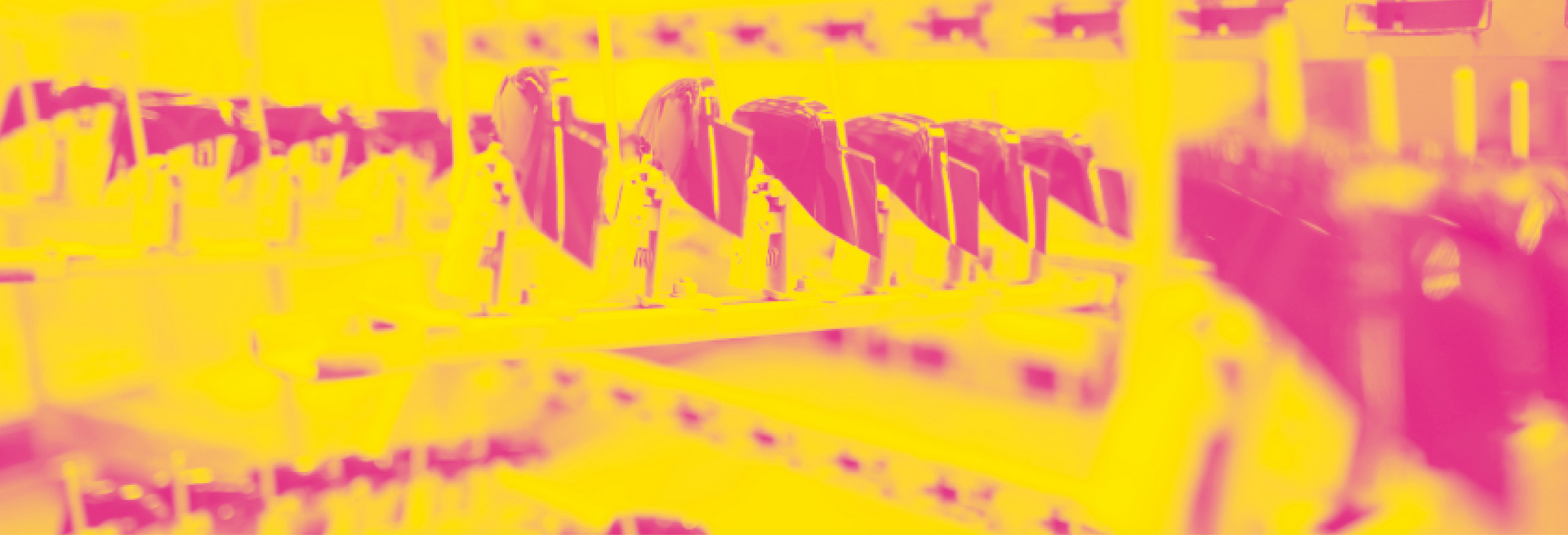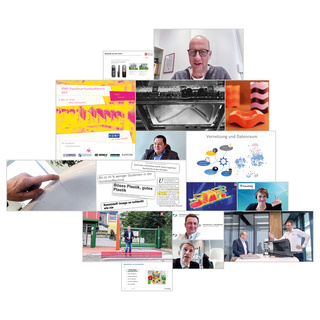“Plastic Fantastic” - The motto under which the VDWF is organizing its third Practical Forum for Plastics Technology
“Plastic Fantastic“ – Eight keynote presentations showcased how multifaceted the world of plastics can be at the Practical Forum for Plastics Technology initiated by the VDWF. On March 8, almost one hundred participants took part in the three-hour event directly online, while even more joined via social media. From lightweight construction to 3D printing, reflections on the history of design to discussions of sustainability concepts, these keynote presentations inspired the audience and illustrated trends within the industry.
Lectures and subsequent Q&A discussions were led and moderated by Prof. Thomas Seul, President of the VDWF and vice-rector for Research and Transfer at the Schmalkalden University of Applied Sciences, and Stefan Hofmann, Executive Director at Hofmann. Stefan Hofmann emphasized that “Plastics needs people” since “If the right people don’t come together to generate new ideas, you stay on the tarmac.” The Practical Forum for Plastics Technology sees itself as a platform to promote this kind of exchange.
Current industry trends: new technology, but no new blood
Stefan Hofmann kicked things off with a presentation entitled “Uses of Lightweight Construction in Plastics Processing” in which he discussed current developments in his own company – particularly the lightweight potential of 3D printing. Dr. Eva Ortner from the Fraunhofer Institute for Process Engineering and Packaging IVV also addressed technological challenges. Ortner, a food chemist, gave a presentation on “Decoding Polymeric Odors“, and the challenges and hurdles accompanying this area in the field of plastics processing. Prof. Markus Susoff from Osnabrück University examined a somewhat different industry trend in his presentation “Focus on Plastics Technology: Germany as a Site of Education and Research”. He foregrounded the decreasing number of students in the engineering field – especially in plastics technology. It is striking that while the number of new students continues to decline, many of those already in the industry pursue continuing education programs. Dr. Susoff explained that “It is important to get students excited about the field of plastics. But this is difficult in the face of cultural ‘plastic-bashing’ which often begins as early as kindergarten.” First things first: “We need to accept that we actually have a problem. Only then can we tackle it.” While the lack of technically interested students currently affects universities and institutions of higher education the most, four to six years from now, the industry will also be confronted with this shortage. The entire sector must therefore address this problem and seek solutions.
Looking back: The history of plastic object design
Besides the discussion of current topics, the forum also looked back on the design of plastic objects. Christiane Wachsmann, deputy chief archivist of the Ulm School of Design, demonstrated in her presentation “Plastic – the Magic Material: Freedom and Limitations of Design” how the work of product designers and people’s everyday lives have changed in the face of plastic use. “Not only were many new shapes introduced, but the world also became much more colorful,” she stated. The industrial manufacturing processes for plastic products – which designers first had to learn and understand – made significant increases in the comforts of many possible. The central question asked by Prof. Christian Bonten from Stuttgart University was how museums deal with such design icons. His presentation “Plastics as Art: Restore or Repair?” enunciated the question he so often gets asked, and which he – in his role as evaluator and expert – must be able to answer.
Topics of the future: Sustainability and recycling
Another thematic focus was that of sustainability – which is intensely discussed in the public sphere. Christian Jurke, Executive Director of the Munich design agency NVGTR, presented on the necessity of rethinking product design. In his presentation “From Mold to Performance – A Paradigm Shift in Construction, Material, and Design” Jurke explained how “organic and technological cycles can come together”. This can be accomplished with approaches such as the use of mono-materials and carefully considered production strategies: “Products and processes returning to a greater degree of simplicity does not mean something has to be sacrificed. The goal is to bring form and function together in a better way – and that can be fun too.” Stefan Schmidt, Executive Director of the Kunststoff-Institut Lüdenscheid also addressed the problem of insufficient recyclability with regard to options for multi-component parts. Schmidt stated that “those who combine different materials should also know how to separate them.” In closing, Mauritius Schmitz, Research Director at the RWTH Aachen Institute of Plastics Processing (IKV), presented the research project “KIOptiPack – Sustainable Plastic Packaging Production using AI”. He asserted that “Sustainability can only be achieved if it is precisely assessed, and tangible tools for that evaluation are currently still missing.” Using AI in this process should change this and optimize the whole plastics cycle.
Those who wanted to dive into the touched-on topics could interact directly with experts after the final presentation. “I am sure this diverse program offered participants new approaches and inspiration,” Seul said in his closing remarks since the lively discussions during and after each presentation had had to be “tightly channeled” so as not to upset the event schedule too much. Thanks to the positive response to this event, the next date is already set: March 2024 will see the next round of the Practical Forum for Plastics Technology.



